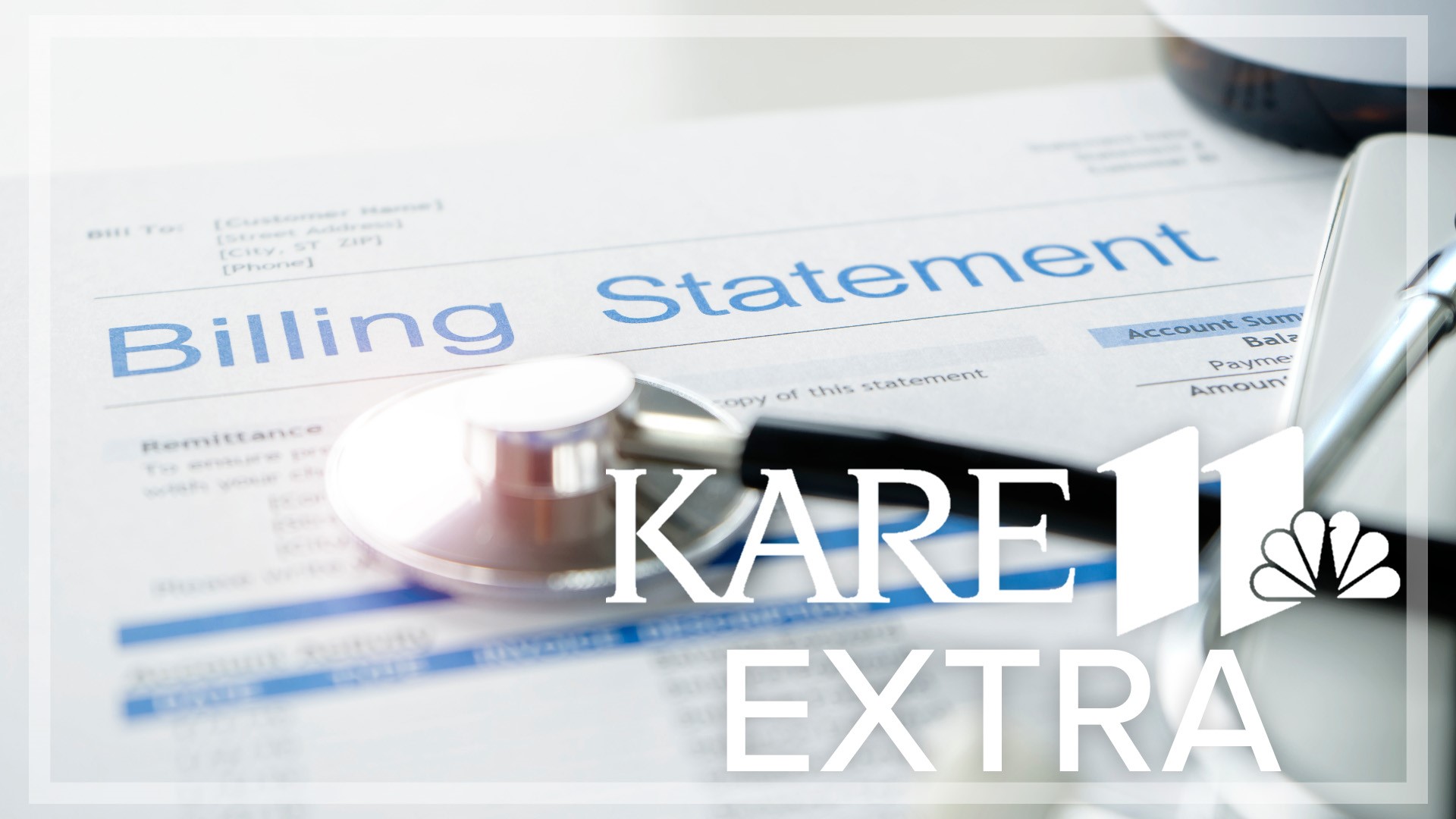GOLDEN VALLEY, Minn. — Here’s an interesting financial fact: Two-thirds of all people who file for bankruptcy in the U.S. cite medical issues as the reason — either the bills themselves or the loss of work because of their medical conditions.
It’s also true that more people than ever have access to health insurance thanks to the Affordable Care Act, but what that doesn't mean, is that more people can suddenly afford medical bills.
“A lot of people have insurance that is basically catastrophic coverage, so the first $3,000 or $4,000 each year, they have to pay out of pocket, and a lot of people just can't afford to do that,” says Kevin Brasler with Consumers’ Checkbook.
Some 66% of all bankruptcies are linked to medical issues, according to CNBC. That's more than 530,000 families a year who feel they have no way out. But there are some things you can do to combat high bills, including one that may seem counterintuitive.
"We spoke to a number of experts who advised, 'Look, never pay the first bill when it comes to medical care,'” says Brasler.
That's right — don't pay it right away. And there's good reason for that.
The first bill isn't always accurate.
"Because often the system just takes a little bit of time to catch up right? It takes a while for the provider to bill the health insurance plan, and for the health insurance plan to approve the claim and pay the provider back,” he says.
Brasler says mistakes get made, too. Sometimes providers don't code things properly, which can result in the insurance company denying your claim. Or they simply didn't submit the claim to your insurance at all. It doesn't mean you owe the whole amount; it just means you need to make a few calls to get it sorted out.
“What patients need to know is that you can often negotiate these bills down,” he says.
"A lot of hospitals, even though people get these enormous bills, have programs in place where they basically act as charities. They are willing to write off a certain amount of debt if you can prove you have a need, and we found that with a lot of these hospitals, the cut-off is if your family makes six figures, you can still qualify,” says Brasler.
And finally, if a bill is too big to pay all at once, don't be afraid to ask if you can pay in installments. Providers know getting their money over time is better than not getting it at all.
You can read more about medical bills from Consumers’ Checkbook here.
WATCH MORE ON KARE 11+
Download the free KARE 11+ app for Roku, Fire TV, Apple TV and other smart TV platforms to watch more from KARE 11 anytime! The KARE 11+ app includes live streams of all of KARE 11's newscasts. You'll also find on-demand replays of newscasts; the latest from KARE 11 Investigates, Breaking the News and the Land of 10,000 Stories; exclusive programs like Verify and HeartThreads; and Minnesota sports talk from our partners at Locked On Minnesota.
- Add KARE 11+ on Roku here or by searching for KARE 11 in the Roku Channel Store.
- Add KARE 11+ on Fire TV here or by searching for KARE 11 in the Amazon App Store.
- Learn more about the KARE 11+ app for Apple TV in the Apple App Store.
- Learn more about KARE 11+ here.
Watch more from Take KARE of your Money:
Get the latest money-saving tips from Take KARE of your Money in our YouTube playlist:

